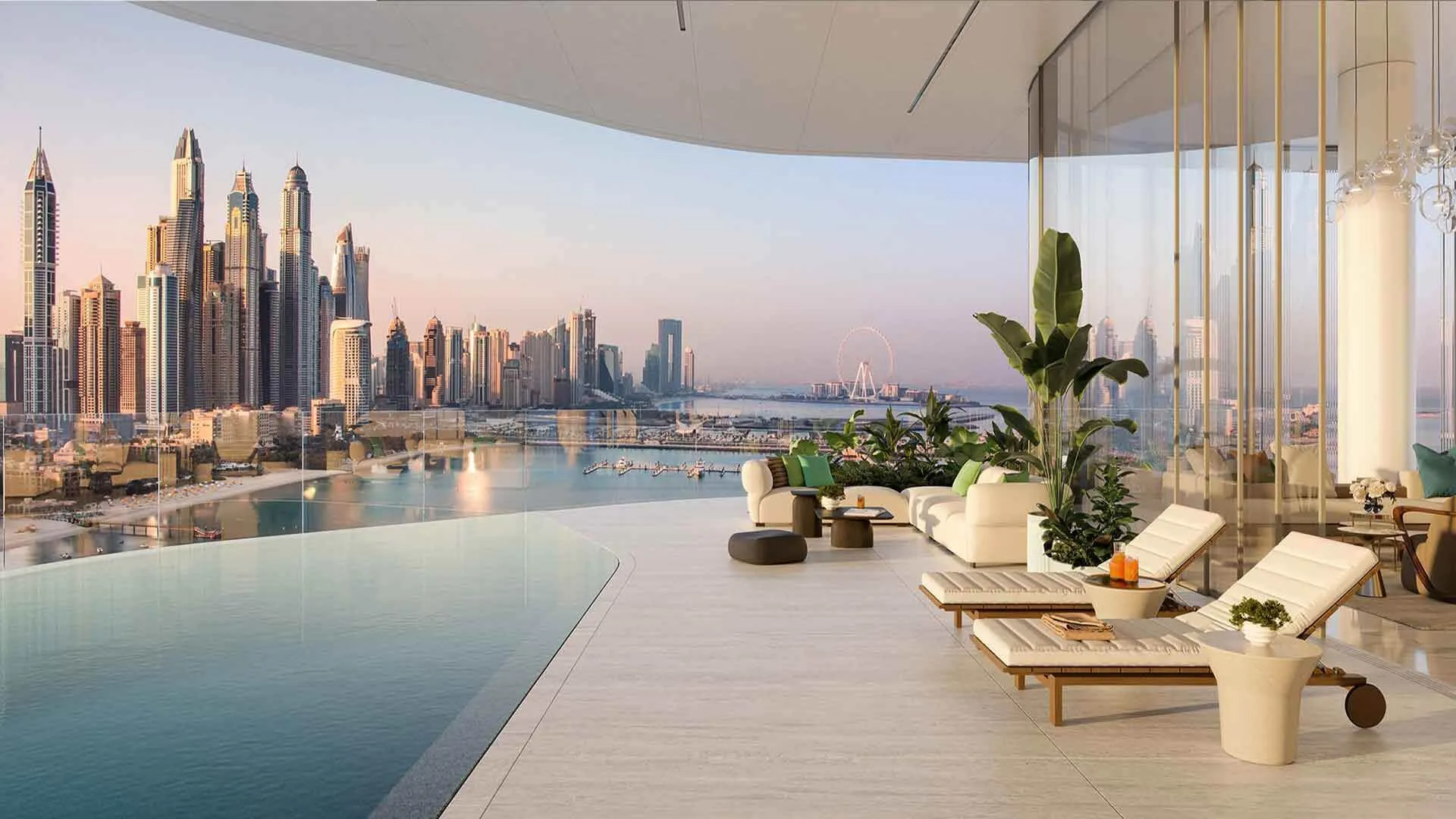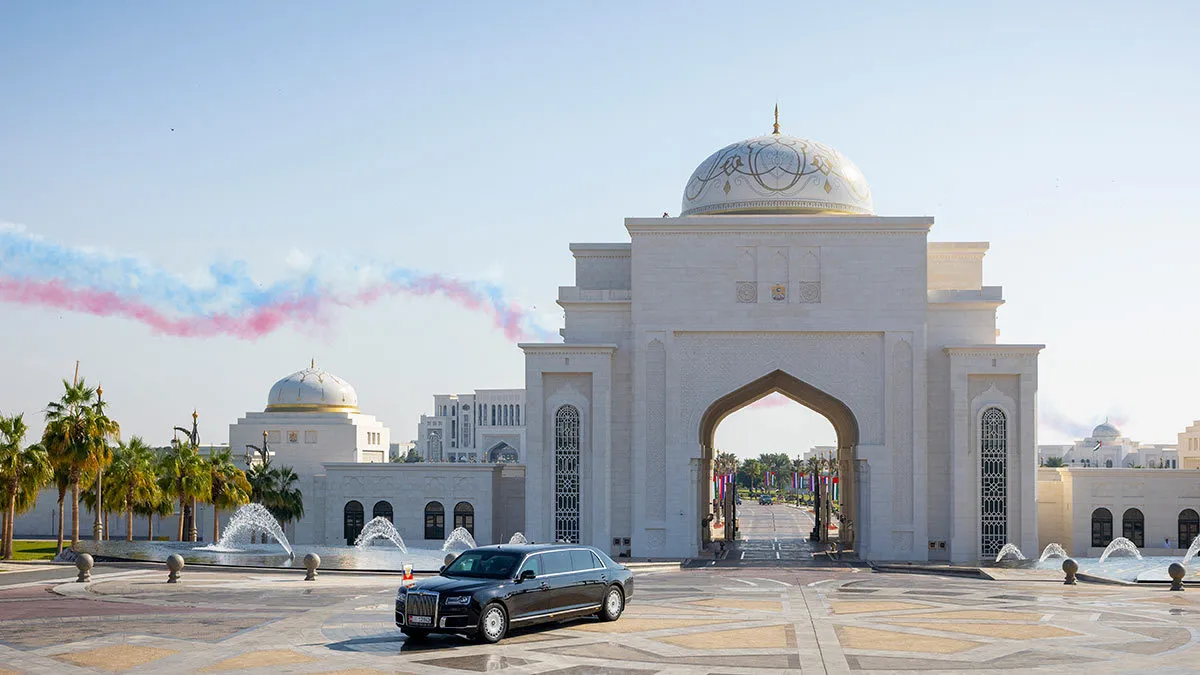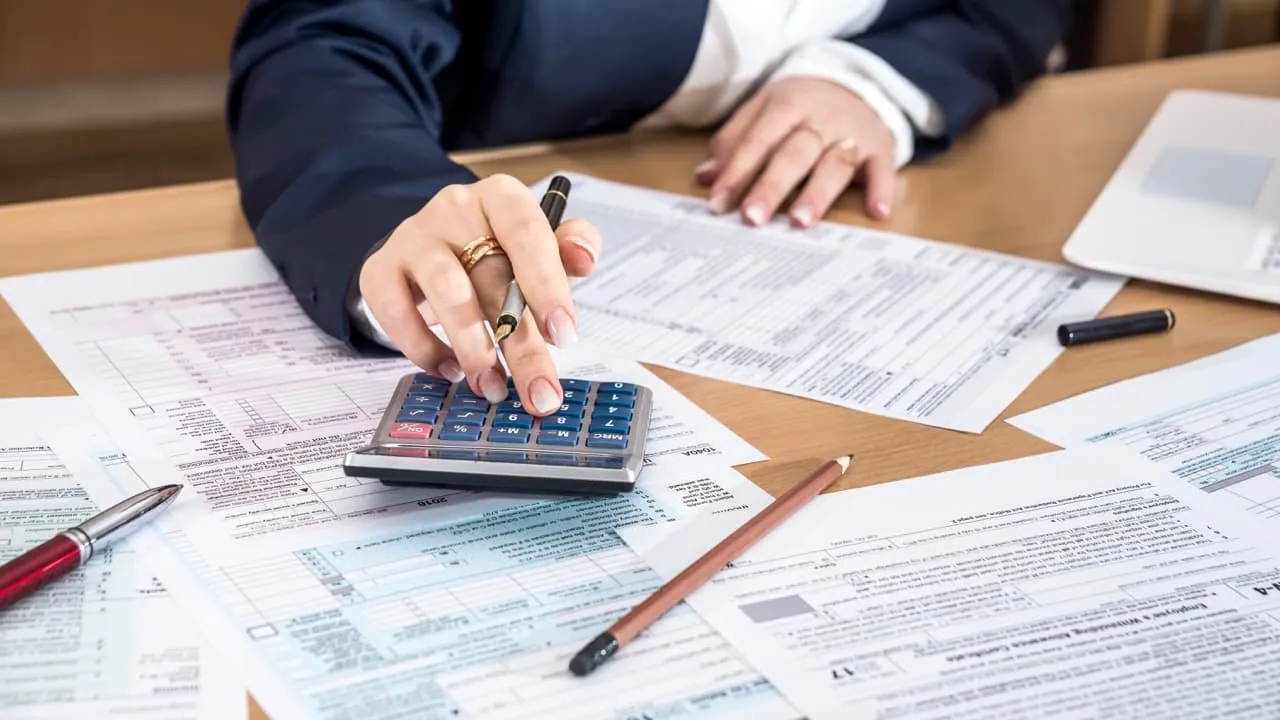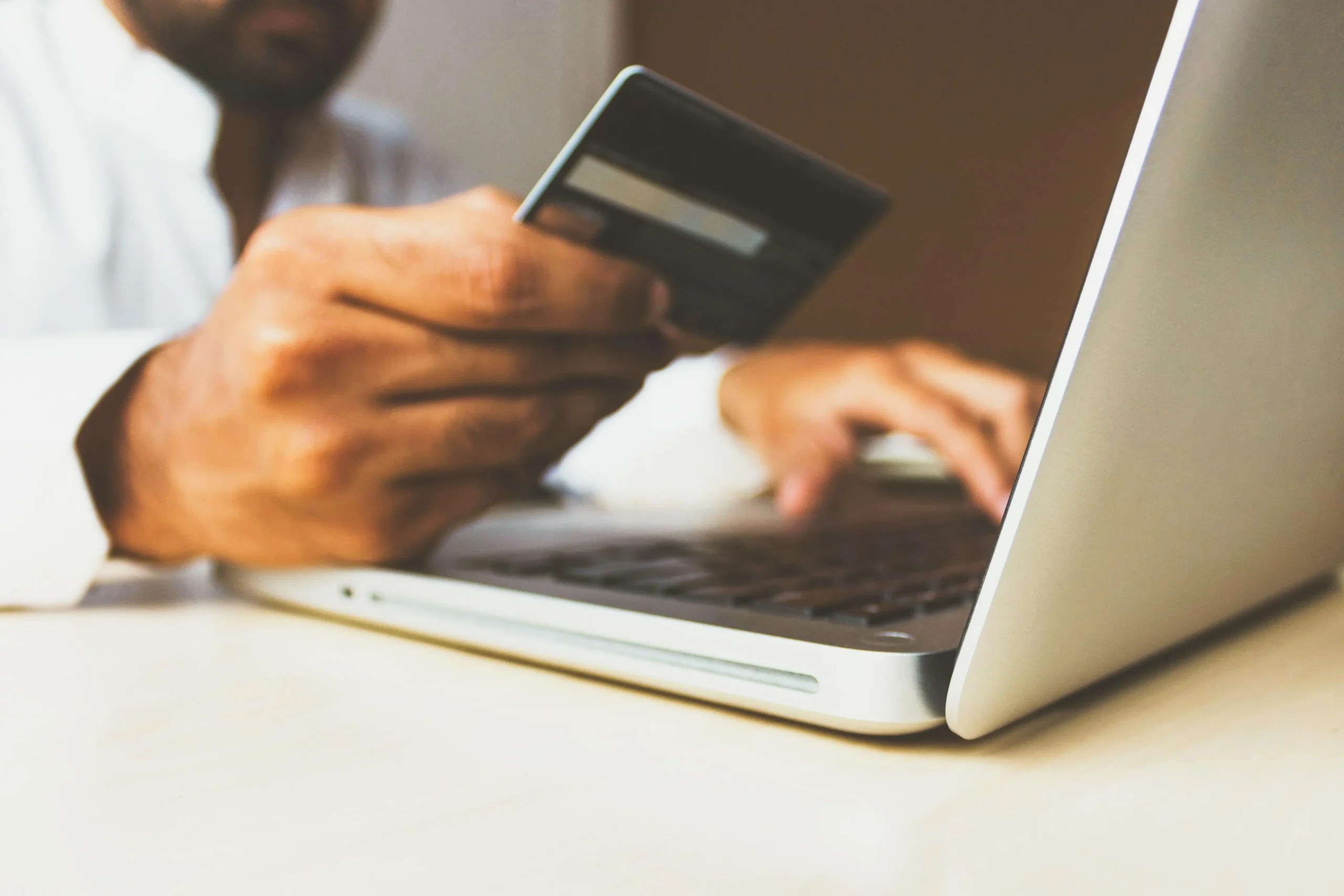The UAE real estate market is open not only to residents but also to foreign buyers. The latter find it particularly advantageous to invest in apartments and villas to live in a high-standard-of-living country, or to obtain a high income from resale. It is also important for the country’s government to attract foreign capital, so transactions are strictly regulated by law to guarantee the protection of buyers’ interests. All payments are made exclusively through local banks using checks. However, there are still some nuances that can affect the ability to dispose of property.
In this article, we will look at how to buy real estate in the UAE and what to consider obtaining full ownership rights to the property.
Who can buy real estate in the UAE: types of ownership and key conditions
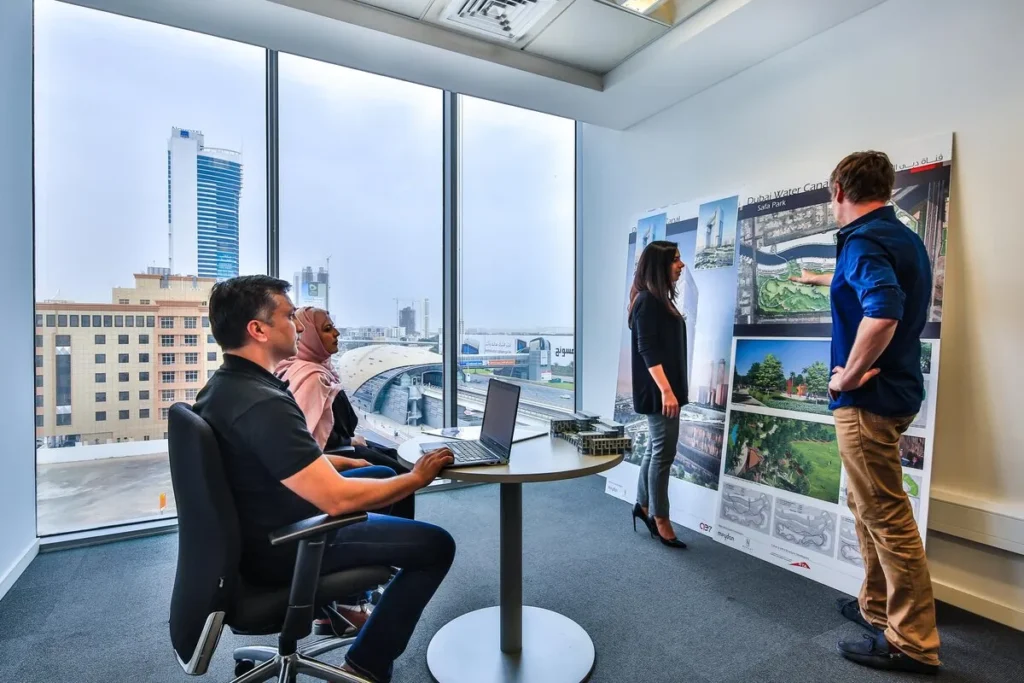
If you want to become a full-fledged property owner, it is significant to know that there are different types of real estate in the UAE. Some allow you to register the property in your name and dispose of it without restrictions: rent it out, sell it, bequeath it, while others do not. Therefore, there are several forms of real estate ownership in the UAE:
- Freehold — is full ownership of a property and land. This format allows you to freely sell your home, rent it out, pass it on to your heirs, and use it to obtain a resident visa. However, freehold is only available in specially designated areas.
- Leasehold — is essentially a long-term lease for up to 99 years. The buyer gets the right to use the house but doesn’t become the owner of the land. The property can be rented out, but resale and inheritance are regulated by the terms of the contract. Leasehold can be an option for temporary living or renting, but it’s not suitable for getting a visa.
- Commonhold — is a form of ownership whereby the buyer obtains the right to dispose of the apartment and, at the same time, part of the common area of the residential complex: parking lots, lobbies, and swimming pools. These areas are managed through a residents’ association. In practice, this can create difficulties: collective decision-making is often ineffective, disputes arise over maintenance and costs, and the liquidity of such properties is lower.
- Usufruct — is the right to use and receive income from real estate for a limited period, without the right to sell or change the structure. The format is similar to leasehold, but with stricter restrictions: you cannot resell the property or rent it out without the consent of the landowner. Usufruct can provide some flexibility for those who want to set up a business on the land. After all, ownership can be more convenient than renting. However, it does not grant foreigners the same rights as freehold.
- Musataha — the right to long-term use of a land plot (up to 50 years with the possibility of extension) for construction and profit. The land remains the property of the state or developer, but the constructed facility may be owned by the investor. This type of ownership is suitable for the construction of hotels, shopping centers, villas, and town houses for the purpose of renting them out or conducting business.
Recommendation: Try to choose Freehold. This gives you maximum freedom and legal protection, especially if you are an investor or plan to live in the UAE.
How much does real estate cost in the UAE: statistics and prices by district in Dubai
The real estate market in the UAE continues to grow rapidly, with no signs of overheating. According to data from the DXB Interact platform for September 2025, the average cost of housing in Dubai was approximately $5,600 per square meter. This is 9.7% higher than in September 2024.
The volume of residential real estate transactions reached AED 54.3 billion, and the total number of properties sold was 20,127, which is 11.3% more than a year earlier. One-bedroom apartments are in the highest demand, accounting for about 40% of such transactions. This is not surprising: they remain the most liquid and versatile for both living and renting.
Popular areas
Particularly attractive areas of Dubai for buying an apartment:
- Jumeirah Village Circle (10.7% of all transactions),
- Business Bay (6,9%),
- Dubai Science Park (6,7%).
These areas are distinguished by their accessibility, good transport links, and development potential. The average price of apartments in these areas ranges from $272,000 to $409,000, or $3,726 per m².
Prestigious areas
Of course, there are areas in Dubai where a square meter costs as much as a work of art:
- Jumeirah Bay Island — $23 840;
- Jumeirah — $22 710;
- Trade Centre — $14 530;
- Bluewaters — $14 080;
- Palm Jumeirah — $12 960.
Here, the price is influenced not only by well-thought-out functionality, but also by prestige, architectural beauty, and the view from the window.
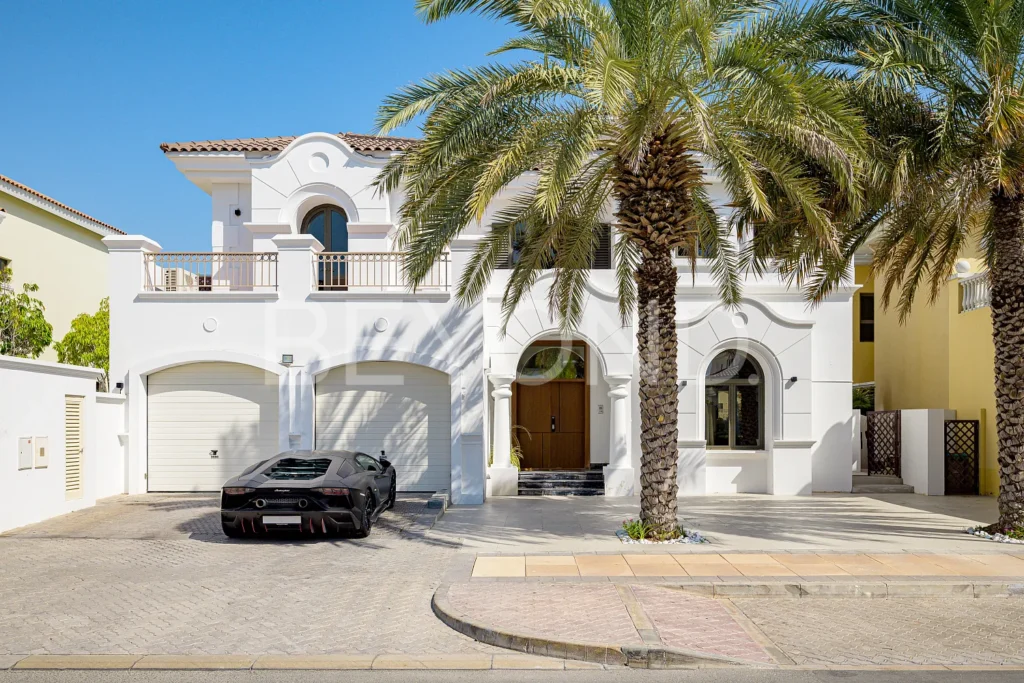
How to obtain a residence visa in the UAE through the purchase of real estate
One of the advantages of buying a home in Dubai is the right to apply for a residence visa. However, to take advantage of this, the property must meet certain criteria. Below are the basic conditions and types of visas.
| Visa type | Minimum property value | Visa validity period | Additional conditions |
|---|---|---|---|
| Resident visa | AED 750,000 — approximately $205,000 | 2 years | The construction of the property must be completed, and the property must be registered with the Land Department. |
| Residence visa (mortgage) | AED 750,000 (≥50% paid) | 2 years | Bank confirmation of at least half of the payment and repayment schedule. |
| Golden visa | AED 2,000,000 — approximately $545,000 | 10 years | Multiple properties may be purchased for the specified amount and above. |
| Retirement visa | AED 1,000,000 — approximately $272,000 | 5 years | Available to persons over 55 years of age when purchasing real estate, and confirming savings or stable income. |
Important:
- The property must be residential and not under construction.
- The visa can be issued to the owner and family members.
- The visa can be issued upon full payment or partial payment (in the case of a mortgage).
For more detailed information about documents, terms, and fees, please visit the “Residence Visa in the UAE” page.
How to buy real estate in the UAE
Buying real estate in Dubai usually consists of five stages: selecting a property, drawing up a contract, opening an account, obtaining a certificate from the developer confirming that there are no financial or legal restrictions on the property, and registering ownership rights. Let’s take a closer look at each stage of the real estate purchase process in the UAE.
How to choose real estate in Dubai
The first step in the process of buying real estate in the UAE is choosing a property. Here it is important to determine the purpose: for living, renting, resale, or business. This determines the type of real estate, the area, the legal status, and even the possibility of obtaining a visa.
If you plan to rent out the property, pay attention to areas with high demand — JVC, Business Bay, Dubai Marina.
- JVC — is an affordable area with high rental demand, especially among expats and young professionals.
- Business Bay — a business center near Downtown, popular with tenants due to its location and infrastructure.
- Dubai Marina — a prestigious waterfront area with skyscrapers, restaurants, and yachts. One of the most sought-after areas for rent.
Dubai Hills, Arabian Ranches, and Jumeirah are suitable for comfortable living.
- Dubai Hills — is a green residential area with parks, schools, and a golf course.
- Arabian Ranches — is a gated community with villas that attract residents with their quietness and privacy.
- Jumeirah — is one of the oldest and greenest areas, with villas and beaches.
If your goal is resale, consider Downtown, Palm Jumeirah, and projects from large developers.
- Downtown Dubai — is the city center with the world-famous Burj Khalifa, shopping malls, and luxury real estate.
- Palm Jumeirah — is an artificial island in the shape of a palm tree. It is a prestigious area with sea views. Expensive apartments and villas are sold here.
Executing the agreement: important considerations
When executing the agreement, it is important to enlist the support of reliable specialists to ensure that all key terms and conditions are included. What to look for:
- Sale and Purchase Agreement (SPA). This document specifies the price, payment terms, transfer conditions, penalties, and liability of the parties. If the house is still under construction, a payment schedule and confirmation of project registration with RERA, a division of the Dubai Land Department (DLD) that regulates the real estate market, are additionally drawn up.
- Documents. When registering, you will need the buyer’s and seller’s passports, a copy of the Title Deed (proof of ownership), a property plan, a certificate from the developer confirming that there are no outstanding debts (NOC), confirmation of the source of funds, and a license from a broker registered with RERA. For properties under construction, you will need to register the project with RERA and provide the Escrow account number.
- Requirements for participants. The broker must be registered with the Real Estate Regulatory Agency (RERA). They accompany the transaction and submit the contract to the land department. A lawyer checks the property, the developer’s history, and compliance with UAE legislation.
Before signing the agreement, it is important to ensure that the property is not encumbered with debts, is not being sold to several parties at the same time, is officially registered, and that all documents are genuine. This reduces the risk of rejection and speeds up registration.
Opening a bank account in the UAE to purchase real estate
One of the important conditions for purchasing real estate in Dubai is opening an account with a local bank. Without it, it will be more difficult to register ownership with the Land Department (DLD). Even if you have collected cash or cryptocurrency, it is better to conduct the transaction through your current account in the UAE. Although cash payments are technically possible, it is better to use a bank account under the current anti-money laundering (AML) procedures. This ensures the security of the transaction and reduces the risks when registering ownership rights.
To open an account, you will need:
- a passport — a document confirming your identity;
- a visa or entry stamp — proof of legal residence in the country;
- a purchase agreement or letter from the developer — the purpose of opening the account;
- a certificate of income or statement from a foreign account — proof of income.
The account is opened within a few business days. It is better to go through this procedure in advance so as not to delay the transaction. It is also significant to note that you can only open an account online if you are already a resident or are applying for a golden visa after investing.
How to obtain a NOC from a UAE bank
If the property is mortgaged, you will need a NOC (No Objection Certificate) — an official document from the bank stating that it has no objection to the sale of the mortgaged property. Without this statement, the Land Department (DLD) will not register the transaction and transfer ownership to the new buyer.
The process of obtaining an NOC includes:
- submitting a request to the bank (in person or through a broker);
- calculating the mortgage balance (paid by the buyer);
- providing a purchase and sale agreement or preliminary agreement;
- payment of a commission (usually between AED 500 and AED 5,000 or $135-1,350);
- waiting for processing (3-7 business days).
How to register ownership in the UAE
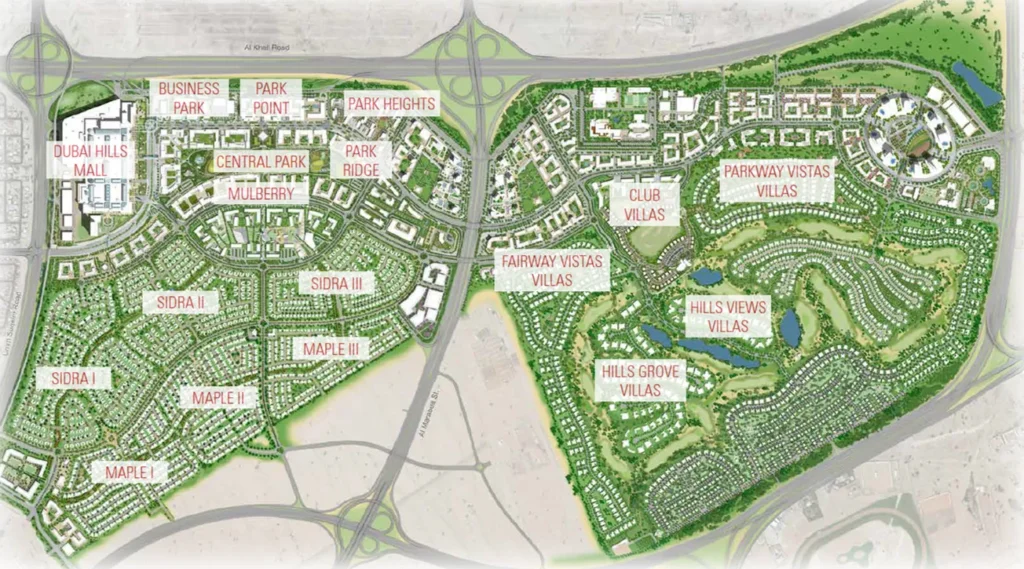
After completing the transaction, you must officially register ownership with the Dubai Land Department (DLD). Without this, the buyer will not receive a Title Deed, a document confirming legal ownership of the property. After checking all the documents and paying the registration fee (4% of the property value), the DLD issues the Title Deed and enters the new owner in the register. On average, if everything is in order, it takes 1 to 5 business days to register real estate in Dubai.
Additional costs when buying real estate in the UAE
One of the conditions of purchase is the need to pay mandatory fees, which can be 6–8% above the price. Without them, the transaction will not be registered. These include mandatory payments:
- Land Department (DLD) fee: 4% of the property value;
- DLD administrative fee: AED 580 for registration;
- Agent commission: usually 2% of the value.
Also, if the property is mortgaged or under construction, you will need to pay:
- off-plan fee: AED 3,000 or 4% — depending on the project;
- mortgage registration: 0.25% of the loan amount + AED 290;
- NOC from the developer or bank: AED 500–5,000;
- notary services and transaction support: as agreed.
This means that if the property costs AED 1,000,000, then, given the specifics of buying real estate in Dubai, you will need to prepare an additional AED 65,000–75,000.
How much does it cost to maintain real estate in Dubai
New owners should bear in mind that property in the UAE incurs maintenance costs, even if you do not plan to live in the country permanently. The main items of expenditure are:
- Service charge — this is a mandatory payment for building maintenance, including security, cleaning of common areas, elevator, and pool operation. It is often calculated based on area: from 100 to 200 AED per square meter per year. For an 80 m² apartment, this is approximately AED 8,000–16,000 (≈ $2,180–4,360) per year.
- Utilities (provided by DEWA) include electricity, water, and sewage. For an average-sized apartment (80 m²), monthly payments range from AED 300 to AED 800 (≈ $81 to $217) or AED 3,600 to AED 9,600 ($975 to $2,600) per year.
- Internet and television are paid separately through Etisalat or Du providers. A standard package with good speed costs AED 300–400 (≈ $82–109) per month, or AED 3,600–4,800 (≈ $980–1,310) per year.
- Air conditioning – most residential complexes use a centralized cooling system (e.g., Empower). For an apartment of about 80 m², monthly payments range from 400 to 1,000 AED (~ $109–272).
Table showing the annual costs of maintaining an 80 m² apartment in the UAE
| Expense item | Amount in AED | Amount in USD |
|---|---|---|
| Utilities | 3 600–8 400 | 975–2 600 |
| Service charge | 8 000–16 000 | 2 180–4 360 |
| Internet and TV | 3 600–4 800 | 980–1 310 |
| Cooling system | 400–1 000 | 109–272 |
| Total | 15 600–30 200 | 4 244–8 542 |
If the apartment is rented out, municipal fees should be added to the expenses. They amount to 5% of the annual rent. The tenant pays these fees.
If the owner does not live in the apartment and does not rent it out, the costs are reduced. Only the service fee and cooling system remain mandatory, and utility bills can be minimized. To do this, you need to turn off the meters, notify the building manager, and contact the suppliers to request a temporary disconnection of services.
How to sell real estate in the UAE
In the Dubai real estate market, a lot depends on “packaging.” The same property can sell in a week or sit on the market for months. Why is this the case? The fact is that buyers in the UAE are not only local residents, but also investors from Europe, Asia, and the CIS. They are looking for the advantageous solutions offered by the Emirates: investments in real estate with clear profitability, transparent status, and quick deals.
To get into the field of vision of potential customers, the property must be competently presented, accompanied by relevant photos and video reviews. At the same time, buyers trust official channels more, which are only accessible to licensed brokers — those who are accredited by RERA, work with escrow accounts, and publish properties through internal platforms that are not available to private sellers. Therefore, the first step should be to contact agents.
We have described all the subsequent steps, legal nuances, and mandatory expenses for the seller in detail in the article «Selling real estate in the UAE: step-by-step instructions».
Pros and cons of buying real estate in the UAE
When you buy a home in the UAE, you gain access to a stable market, flexible ownership conditions, and an international environment. But to make an informed decision, it is important to consider the nuances that are important for both investors and those who are buying an apartment for themselves.
What buying real estate in Dubai offers investors:
- A tool with high ROI. Rental yields can reach 7–10% per annum, especially in areas with developed infrastructure and intense tourist traffic.
- No property tax or capital gains tax. Commissions are paid by the tenant.
- The market is open to foreigners, and therefore virtually unlimited for attracting investment.
- Security: transactions are registered through the Land Department with the mandatory participation of accredited agents and banks.
In addition to the advantages, there are also risks that are important to consider. Some areas are “overheated” — entering at the peak can reduce profitability. New buildings are often delivered with delays. Liquidity depends on location and competition — it is not always possible to sell quickly. Rental income can be unstable: it is affected by seasonality, the type of property, and market saturation.
For private buyers, the advantages are obvious: a high standard of living, security, no property tax, and the possibility of obtaining a resident visa when purchasing from $205,000. Many choose Dubai as a second or seasonal residence — for comfortable living among luxurious exteriors, access to world-class medicine, and international infrastructure.
As for the disadvantages, even if you have purchased a property in a good area with the possibility of full disposal of the property and immediate occupancy, there are other objective nuances of buying real estate in Dubai. Climate: in summer, temperatures reach +45 °C and above, so cooling costs can rise. The language and legal system are different from those in Europe. All this requires certain resources and adaptation.
In addition, residential complexes have strict cultural norms: noise or non-standard use of the premises (for parties or business) may cause complaints from residents. Management companies and developers are obliged to respond to such complaints.
Checklist: important things to consider when buying real estate in Dubai
Before buying an apartment in Dubai — for yourself, for rent, or for resale — it is important to consider not only the price and location, but also many other practical details. Below is a checklist that covers everything that affects comfort, profitability, legal clarity, and further use of the property.
- Choose freehold: only this gives you full ownership rights without any time restrictions.
- Make sure that the property is suitable for a residence visa (usually from AED 750,000).
- Keep in mind that you will need to pay fees — approximately 8% of the property value.
- Remember that you will have to pay an annual service fee and centralized air conditioning, regardless of whether you live in the property.
- Work with an accredited lawyer or agent, as all documentation is in Arabic and English. All courts and disputes are resolved under local law.
- Be prepared for the fact that in order to complete the transaction, you will need to open an account with a local bank and confirm the source of the funds.
- In summer, temperatures can reach +45 °C, which affects comfort and cooling costs. Air conditioners run constantly, which has an impact on your budget.
- Take cultural norms into account: do not make noise, violate generally accepted rules, or use the property for purposes other than those intended, so that you do not have any claims from the developer in the future.
How to buy real estate in Dubai transparently, safely, and without legal risks
Let’s summarize. In this article, we have covered all the features of buying real estate in Dubai: from choosing a property to completing the transaction. However, this article is not a substitute for personal legal advice. We remind you that all payments in the country are made exclusively through a broker and through the buyer’s personal bank account registered in the Emirates. This is a mandatory condition that protects participants from contract termination or the risk of losing funds.
As an accredited agent, we can take care of the entire process — from checking the property and agreeing on the terms to registering the transaction with the Land Department. We provide:
- verification of the legal purity of the property;
- preparation of a purchase and sale agreement;
- assistance in opening a bank account;
- registration of ownership rights;
- consultations on mandatory fees, rent, and further management of the property.
Even if you are currently abroad, the transaction will be executed correctly, safely, and in accordance with applicable regulations.


